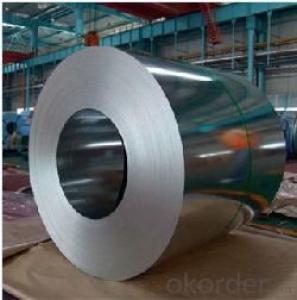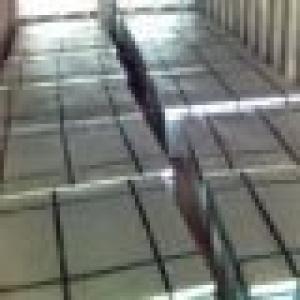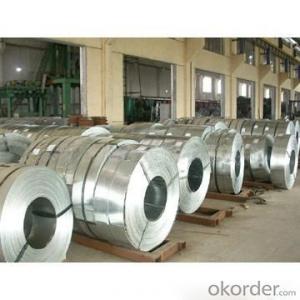HOT DIP Galvanized steel coils Z40-Z600
- Loading Port:
- Shanghai
- Payment Terms:
- TT OR LC
- Min Order Qty:
- 25 m.t.
- Supply Capability:
- 10000 m.t./month
OKorder Service Pledge
OKorder Financial Service
You Might Also Like
Hot dip galvanized steel coils
Specifications
galvanized steel coil
1.Thickness:0.135-4.0mm
2.Width:600-1500mm
3.Zinc:40g-275g
4.Material:SGCC,DX51D,G550,SPGC,etc.
product name | Galvanized steel coils |
thickness | 0.135mm-4.0mm |
width | 600mm-1500mm762mm,914mm,1000mm,1200mm,1219mm,1250mm |
zinc coating | 40g,60g, 80g, 90,100g, 120g, 140g,180g, 200g, 250g, 275g and so on. |
standard | ASTM, AISI, DIN, GB |
material | SGCC,DC51D,DX51D,DX52D,,SGCD,Q195,Q235,SGHC,DX54D, S350 GD, S450 GD,S550 GD |
spangle | zero spangle, regular spangle or normal spangle |
surface treatment | chromated and oiled, chromated and non-oiled |
packing | export standard. |
payment | T/T, L/C or DP |
min order | 25 tons (one 20ft FCL) |
coil weight | 3-8ton or as client requirement. |
quality | soft or hard quality |
Galvanized steel coils
STEEL GRADE | CHEMICAL COMPOSITION % | MECHANIC PROPERTY | C.B OF COATING | COATING | ||||||||||
C | Si | Mn | S | P | T.S | Y.S | E.L | |||||||
x103 | x103 | x102 | x103 | x103 | Mpa | Mpa | % | d=0 180° | G/M² | |||||
JIS G3302 SGCC | 12 | 30 | 41 | 31 | 21 | 480 | 300 | 13 | OK | Z60-150 | ||||
JIS G3302 SGCH | 12 | 10 | 21 | 18 | 8 | 680 | 650 | OK | Z60-150 | |||||
ASTM A653 CS.B | 20 | 30 | 60 | 35 | 30 | 386 | 205~380 | 20 | OK | Z80-275 | ||||
DX51D+Z | 29 | 21 | 18 | 1.8 | 11 | 355 | 245 | 38 | OK | Z80-275 | ||||
G550 | 20 | 6 | 73 | 5 | 17 | 715 | 654 | 8 | OK | Z80-275 | ||||
- Q:What is the size range of steel coils?
- The size range of steel coils can vary depending on the specific requirements and applications, but generally, they can range from a few inches to several feet in width and from a few thousand pounds to several tons in weight.
- Q:Is there a type of spray paint that would work on Stainless steel?That would also be permenant or at least make it through a wash or two?
- I've also learned something today! Good luck and have fun!
- Q:What is the difference between steel coils and steel sheets?
- Steel coils and steel sheets are both forms of steel, but they have distinct differences. Steel coils refer to a long, continuous roll of steel that is wound up into a coil shape. These coils are usually produced at a steel mill and are typically used for further processing or manufacturing purposes. Steel coils are commonly used in various industries such as automotive, construction, and appliance manufacturing. They are often used to produce different products like pipes, tubes, and automotive parts. On the other hand, steel sheets are flat pieces of steel that are typically cut from steel coils. These sheets are available in various sizes and thicknesses, making them versatile for different applications. Steel sheets are commonly used in construction projects, such as roofing, siding, and structural components. They are also used in manufacturing processes, such as stamping, forming, and fabrication of various products. One key difference between steel coils and steel sheets is their shape and form. Steel coils are in a rolled, cylindrical form, while steel sheets are in a flat, rectangular shape. This difference in shape makes steel coils more suitable for continuous production processes, while steel sheets are used for specific applications that require flat surfaces. Another difference is the handling and transportation of these steel forms. Steel coils are typically transported and stored using special equipment, such as coil cars or cranes, due to their large size and weight. Steel sheets, on the other hand, can be easily stacked, transported, and stored using conventional methods. Lastly, the processing requirements of steel coils and steel sheets differ. Steel coils often undergo additional processing steps, such as slitting, cutting, or coating, to meet specific customer requirements. Steel sheets, on the other hand, may require minimal processing before being used in their intended applications. In summary, steel coils and steel sheets differ in their shape, handling, transportation, and processing requirements. Steel coils are rolled, cylindrical forms used for further processing, while steel sheets are flat pieces cut from coils and used for specific applications. Understanding these differences is crucial in selecting the appropriate steel form for a particular project or manufacturing process.
- Q:I heard that the stores don't sale Steel Legion anymore...Is this true..Also I want to know why they cost more than regular Imperial Guardsmen..Such as Cadian...Do they have something Special?Also what do I need to buy to have a complete Steel Legion army..I need two squads of troops of 20's?and two sergeants for each squad.and one commiser?Well I;m guessing..someone please help...I havent played in about 4 years.
- The stock at various shops may vary, but you can buy Steel Legion miniatures through the mail order, or the Internet from GW. Cadian troopers are plastic, There are no plastic Steel Legion troops. The plastic models are (a tiny bit) not so horribly expensive as the metallic ones. The minimum requirements for your force vary from mission to mission, but a good start is 1 HQ unit 2 Troop choices. Also, the total points cost of the battle is to be considered. (Usually 500, 1000, or 1500 points.) What you described is one possible choice, although the size of IG squads is 10 and not 20. And you must include a command squad, the commissar is optional. You might change the other 20 troops for a tank, or a squad of Sentinels. Happy gaming!
- Q:Is there any other way of testing whether or not you have a 1944 Steel penny that won't damage the penny. The magnet test doesn't seem to work cause even when I try to get a 2007 penny to stick to the magnet...it won't. So is there some kind of magnet needed? Like power wise or anything like that, if not then I need to know what are other ways of testing the 1944 penny.
- This Site Might Help You. RE: 1944 Steel Penny? Is there any other way of testing whether or not you have a 1944 Steel penny that won't damage the penny. The magnet test doesn't seem to work cause even when I try to get a 2007 penny to stick to the magnet...it won't. So is there some kind of magnet needed? Like power wise or anything...
- Q:We are going to build a house with a steel frame.Someone told me today that these houses have problems with humidity.Is that true?Please tell me all you know..
- That's a first for me. The only draw back to a steel frame home is the cost, not only in material but also in labor. They do make a great home with proper installation. Make sure your contractor and framing crew have experience with metal frame construction. There is some differences in building codes, etc. Good Luck and happy building.
- Q:Can steel coils be used in the production of HVAC systems?
- Certainly, HVAC systems can make use of steel coils. In the production of HVAC equipment, like air handlers, condenser coils, evaporator coils, and heat exchangers, steel coils are frequently employed. Their durability and strength make them well-suited to endure the rigorous pressures and temperatures involved in HVAC operations. Moreover, steel coils possess favorable heat transfer properties, facilitating efficient heat exchange between the refrigerant and the conditioned air. In summary, steel coils are an dependable and widely-utilized element in the manufacturing of HVAC systems.
- Q:How are steel coils used in the manufacturing of railway equipment?
- Steel coils are a crucial component in the manufacturing of railway equipment due to their strength, durability, and versatility. These coils are typically made from high-quality steel and are extensively used in various applications throughout the railway industry. One primary use of steel coils in the manufacturing of railway equipment is in the production of train tracks. Steel coils are rolled out and shaped into long, continuous rails that form the foundation of railway tracks. The strength and durability of these coils enable the tracks to withstand heavy loads, constant train traffic, and harsh weather conditions. Additionally, the uniformity and consistency of steel coils ensure smooth and safe train operations. Furthermore, steel coils are also used in the manufacturing of railway wagons and carriages. These coils are formed and shaped into various components such as the framework, body panels, and structural supports of the wagons. The robustness of steel coils ensures the structural integrity of the wagons, enabling them to carry heavy cargo and withstand the rigors of railway transportation. Moreover, steel coils are utilized in the fabrication of various railway equipment accessories, including couplings, brake systems, and suspension components. These coils are transformed into precise shapes and sizes to meet the specific requirements of each accessory. The strength and resilience of steel coils make them ideal for these critical parts, ensuring efficient and safe operation of the railway equipment. In summary, steel coils play a vital role in the manufacturing of railway equipment. Their strength, durability, and versatility make them an essential material for the construction of train tracks, wagons, carriages, and various accessories. The use of steel coils ensures the safety, reliability, and longevity of railway equipment, making them an integral part of the railway industry.
- Q:What are the different types of corrosion protection for steel coils?
- There are several different types of corrosion protection for steel coils, including galvanizing, paint coatings, organic coatings, and metallic coatings. Each method provides a barrier between the steel surface and the corrosive environment, preventing or slowing down the corrosion process. Galvanizing involves applying a layer of zinc to the steel surface, while paint coatings use various types of paints or primers. Organic coatings utilize polymers or resins to form a protective layer, and metallic coatings such as tin or aluminum can also be applied. The choice of corrosion protection method depends on factors such as the specific corrosive environment, desired lifespan, and cost considerations.
- Q:What are the common sizes of steel coils?
- The common sizes of steel coils vary depending on the specific application and industry. However, some standard sizes for steel coils include widths ranging from 0.5 inches to 72 inches, and thicknesses ranging from 0.010 inches to 0.250 inches. These sizes can be customized to meet the specific requirements of different industries such as automotive, construction, or manufacturing.
1. Manufacturer Overview |
|
|---|---|
| Location | |
| Year Established | |
| Annual Output Value | |
| Main Markets | |
| Company Certifications | |
2. Manufacturer Certificates |
|
|---|---|
| a) Certification Name | |
| Range | |
| Reference | |
| Validity Period | |
3. Manufacturer Capability |
|
|---|---|
| a)Trade Capacity | |
| Nearest Port | |
| Export Percentage | |
| No.of Employees in Trade Department | |
| Language Spoken: | |
| b)Factory Information | |
| Factory Size: | |
| No. of Production Lines | |
| Contract Manufacturing | |
| Product Price Range | |
Send your message to us
HOT DIP Galvanized steel coils Z40-Z600
- Loading Port:
- Shanghai
- Payment Terms:
- TT OR LC
- Min Order Qty:
- 25 m.t.
- Supply Capability:
- 10000 m.t./month
OKorder Service Pledge
OKorder Financial Service
Similar products
New products
Hot products
Related keywords





























